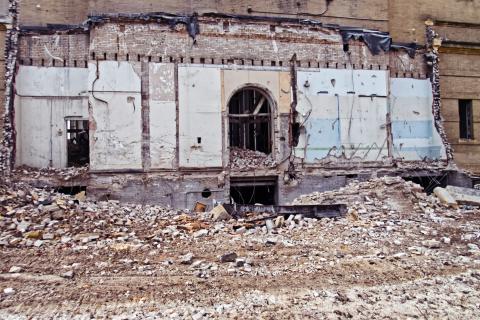
Not so long ago, with the rise of an “unruly print culture” in the latter half of the nineteenth century, cultural commentators began to worry about reading habits the way we now tend to worry about social media use and TV consumption. “Readings are devoured,” one 1889 magazine warned, according to this recent First Things piece, “and that is why people become sick.”
We seem a long way off from that, these days. We’re accustomed instead to the sound of a very different set of alarm bells: those ringing over the steady decline in reading habits in recent years, with even Ivy League professors acknowledging students’ diminishing capacity to read much or to read well. “They have difficulty concentrating for extended periods, following plotlines, and registering details,” the First Things piece noted, showing up to classes less prepared and less intellectually agile than they would have been a few years ago.
The article suggests, however, that such shifts don’t have to be just signs of intellectual or cultural loss: a shrinking reading population doesn’t have to mean a less enriching literary culture. Indeed, perhaps the smaller sample size will make for a more refined, charismatic, erudite one, in its not needing to appeal to the masses.
But this cultural shift does seem to raise one question: are we just enduring a diminishment in reading habits, or in mental and intellectual ones, too? To put it another way: what’s the relation between reading and clear thinking, and can we lose one while keeping the other? For on one hand, if large sectors of the population had been reading mainly for entertainment, turning mostly to popular novels or “self-help” sorts of books when they did read, the loss of their readership might not have to be the end of high culture. After all, most societies throughout history have been made up of a population that was mostly illiterate, and yet many of them were very sophisticated.
But on the other hand, there is a strangeness to this slipping reading capacity affecting even those who are leading the way in terms of education and deep thought. Every civilization has been built upon education, in the sense that those who were educated have been the carriers of culture in its most important aspects. They’ve been the priests, the government leaders, the teachers. So even if the majority of folks weren’t educated, they did tend to build their lives – their opinions, their habits and patterns of life – around the thoughts and activity of those who were. Readers have been the skilled thinkers and leaders, in other words, the ones able to provide wisdom and a rootedness in truth and the tradition. And all that hasn’t been in a spirit of elitism, necessarily, but in acknowledgement of the reality that the complex issues that mark any society require complex, acute powers of mind, and reading trains one into them.
So, the subtle alarm bells ringing over these shifting reading patterns are, perhaps, cause for asking some good, even more pressing questions: is a reduced reading capacity among those whom we’d expect to read well the mark of a deeper loss? Or are there other ways, apart from learning to read well, to train the mind in the rigor and discipline needed to direct and advise the concerns of whole communities? If there are, fine. But should we be concerned that we are losing something of our willingness to undergo the training and discipline necessary to think steadily and meticulously, such that the slippage of reading is only a symptom of a more troubling problem, one that does mark the inching of our culture closer to a kind of barbarism?
In other words, “The Future of Reading,” as First Things titles its piece, is an interesting sociological puzzle in its own right. But it also provides points for deeper reflection – on what makes us human, on what makes our cultures and civilizations humane, and on what we’re really willing to sacrifice and endure to become, fully, who we are.
Long the summer residence of popes escaping the Roman heat, the mountain town of Castel Gandolfo fell quiet when Pope Francis chose to forego the tradition. With Pope Leo XIV's decision to return to the papal summer residence, the town has come back to life with preparations for his arrival on July 6.


